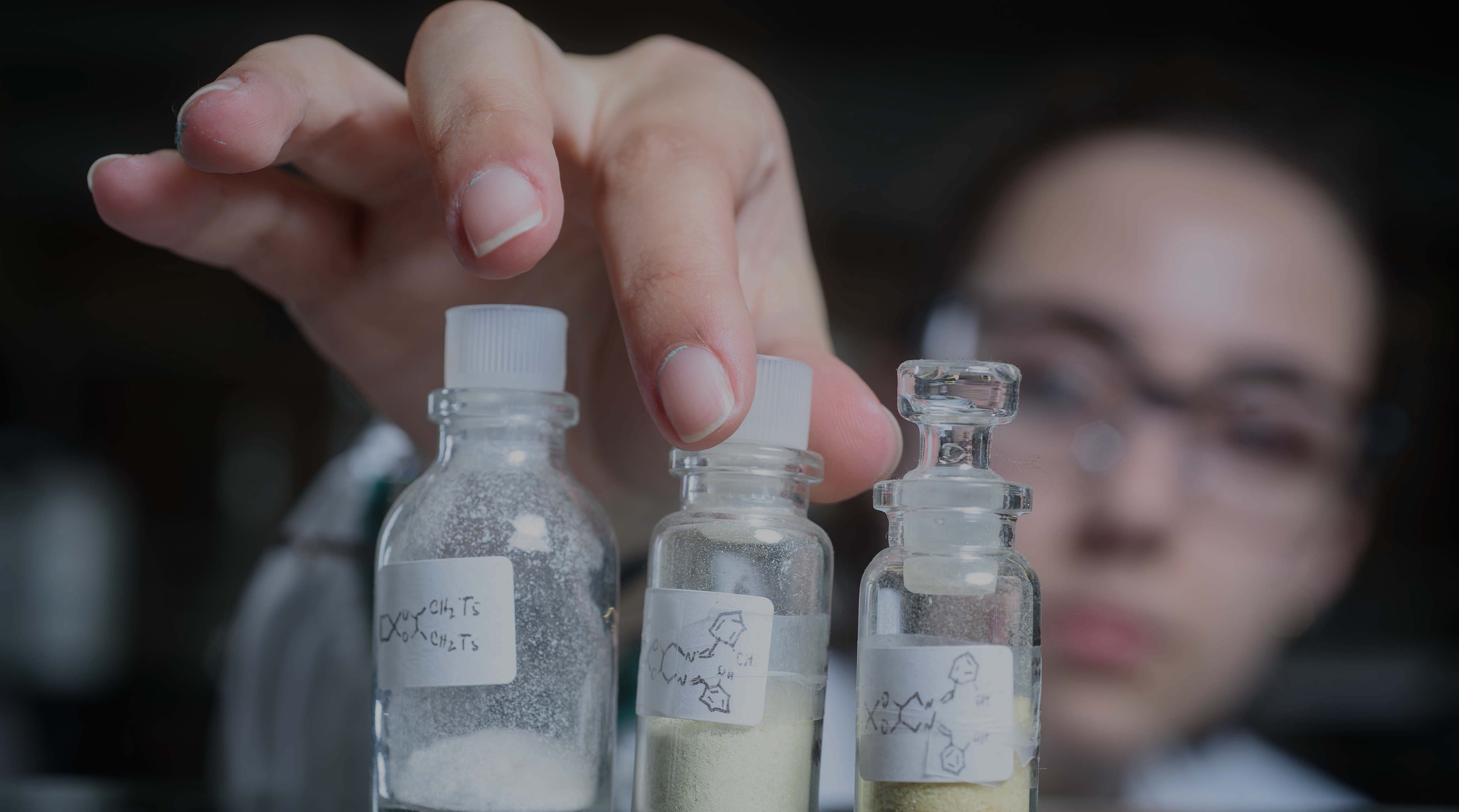Integrated Members
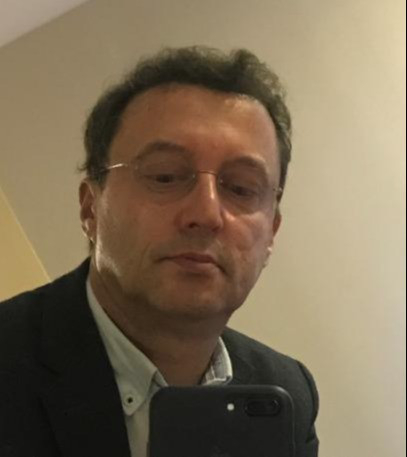 Rui Fausto is a Professor of the Department of Chemistry of the University of Coimbra, and a Visiting Researcher of the Istanbul Kultur University (Turkey). He was born in Coimbra, and graduated in Chemistry (1984) at the University of Coimbra. He obtained the Ph.D. in Sciences (Chemistry – Molecular Spectroscopy) in 1988, and was a post-doctoral fellow at the NRC Canada, where he works in infrared, Raman and resonance Raman spectroscopies of proteins. After his return to Coimbra, he started the installation of the first (and unique until now) Portuguese cryospectroscopy laboratory, the LMC. Rui Fausto is member of the European Academy of Arts, Sciences and Humanities (Paris), integrates the Editorial Boards of several international scientific journals (he was the Editor-in-Chief of the Journal of Molecular Structure, Elsevier, Amsterdam, until December 2023), and is the President of the European Congress on Molecular Spectroscopy (EUCMOS) Steering Committee. Along his career he has occupied many different positions in the administration and scientific management in the University of Coimbra, including the presidency of the Academic Council and the vice-presidency of the Scientific and Directive boards of the Science and Technology Faculty and the presidency of the Institute for Interdisciplinary Research of the University of Coimbra. In 2004 and 2005 he was one of 12 Portuguese chemists awarded with the Excellence Prize of the Portuguese Science Foundation / Portuguese Ministry of Science. He is author or editor of >40 scientific books and author of more than 500 scientific papers and book chapters (h-index: 57). He has supervised a large number of students and was involved in over 50 competitive research projects, which correspond to a total funding of several millions of euros. His scientific interests are broad, including theoretical and computational chemistry, chemometrics, molecular spectroscopy and photochemistry.
Rui Fausto is a Professor of the Department of Chemistry of the University of Coimbra, and a Visiting Researcher of the Istanbul Kultur University (Turkey). He was born in Coimbra, and graduated in Chemistry (1984) at the University of Coimbra. He obtained the Ph.D. in Sciences (Chemistry – Molecular Spectroscopy) in 1988, and was a post-doctoral fellow at the NRC Canada, where he works in infrared, Raman and resonance Raman spectroscopies of proteins. After his return to Coimbra, he started the installation of the first (and unique until now) Portuguese cryospectroscopy laboratory, the LMC. Rui Fausto is member of the European Academy of Arts, Sciences and Humanities (Paris), integrates the Editorial Boards of several international scientific journals (he was the Editor-in-Chief of the Journal of Molecular Structure, Elsevier, Amsterdam, until December 2023), and is the President of the European Congress on Molecular Spectroscopy (EUCMOS) Steering Committee. Along his career he has occupied many different positions in the administration and scientific management in the University of Coimbra, including the presidency of the Academic Council and the vice-presidency of the Scientific and Directive boards of the Science and Technology Faculty and the presidency of the Institute for Interdisciplinary Research of the University of Coimbra. In 2004 and 2005 he was one of 12 Portuguese chemists awarded with the Excellence Prize of the Portuguese Science Foundation / Portuguese Ministry of Science. He is author or editor of >40 scientific books and author of more than 500 scientific papers and book chapters (h-index: 57). He has supervised a large number of students and was involved in over 50 competitive research projects, which correspond to a total funding of several millions of euros. His scientific interests are broad, including theoretical and computational chemistry, chemometrics, molecular spectroscopy and photochemistry.
 António J. C. Varandas received a diploma in Chemical Engineering from the University of Porto in 1971, and a Ph.D. in Theoretical Chemistry from the University of Sussex in 1976. After graduation in Porto, he joined the staff at the Department of Chemistry of the University of Coimbra as Assistant Professor, where he started a position of Full Professor in 1988. His research interests are on Theoretical Chemistry, covering topics from potential energy surfaces to non-adiabatic effects in rovibrational spectroscopy and reaction dynamics, some having implications in combustion processes and ozone chemistry at the middle atmosphere. He has published over 300 papers, and co-authored a monograph on Molecular Potential Energy Functions. Since 2006 he has been a Corresponding Member of the Academia de Ciências de Lisboa, Portugal.
António J. C. Varandas received a diploma in Chemical Engineering from the University of Porto in 1971, and a Ph.D. in Theoretical Chemistry from the University of Sussex in 1976. After graduation in Porto, he joined the staff at the Department of Chemistry of the University of Coimbra as Assistant Professor, where he started a position of Full Professor in 1988. His research interests are on Theoretical Chemistry, covering topics from potential energy surfaces to non-adiabatic effects in rovibrational spectroscopy and reaction dynamics, some having implications in combustion processes and ozone chemistry at the middle atmosphere. He has published over 300 papers, and co-authored a monograph on Molecular Potential Energy Functions. Since 2006 he has been a Corresponding Member of the Academia de Ciências de Lisboa, Portugal.
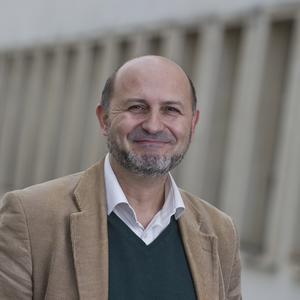 Sérgio P. J. Rodrigues has a Ph.D. in Theoretical Chemistry and is an assistant professor in the Chemistry Department of the University of Coimbra. His scientific interests are centered in the areas of theoretical and computational chemistry but extend to education in chemistry, history of chemistry and communication of science. The popularization of chemistry and outreach activities directed to secondary students and the general public is an important component of his activities, as part of an effort to attract more students to chemistry and for research in chemistry. Sérgio regularly writes popularization texts of chemistry in the blogs de Rerum Natura and Percursos Químicos, and published in 2014, in Gradiva, "Jardins de Cristais: Química e Literatura". In 2013 and 2014 he was a member (and coordinator of the chemistry part) of the team that defined the Educational Standards for the Portugues basic education (7th to 9th grades) in Physics and Chemistry and the Programs and Educational Standards of Physics and Chemistry in the Portuguese Secondary Education (10th to 12th grades). He is now consultant for the chemistry collections of the science museum and member of the Scientific Committee of the Sciences Faculty of Universidade de Coimbra.
Sérgio P. J. Rodrigues has a Ph.D. in Theoretical Chemistry and is an assistant professor in the Chemistry Department of the University of Coimbra. His scientific interests are centered in the areas of theoretical and computational chemistry but extend to education in chemistry, history of chemistry and communication of science. The popularization of chemistry and outreach activities directed to secondary students and the general public is an important component of his activities, as part of an effort to attract more students to chemistry and for research in chemistry. Sérgio regularly writes popularization texts of chemistry in the blogs de Rerum Natura and Percursos Químicos, and published in 2014, in Gradiva, "Jardins de Cristais: Química e Literatura". In 2013 and 2014 he was a member (and coordinator of the chemistry part) of the team that defined the Educational Standards for the Portugues basic education (7th to 9th grades) in Physics and Chemistry and the Programs and Educational Standards of Physics and Chemistry in the Portuguese Secondary Education (10th to 12th grades). He is now consultant for the chemistry collections of the science museum and member of the Scientific Committee of the Sciences Faculty of Universidade de Coimbra.
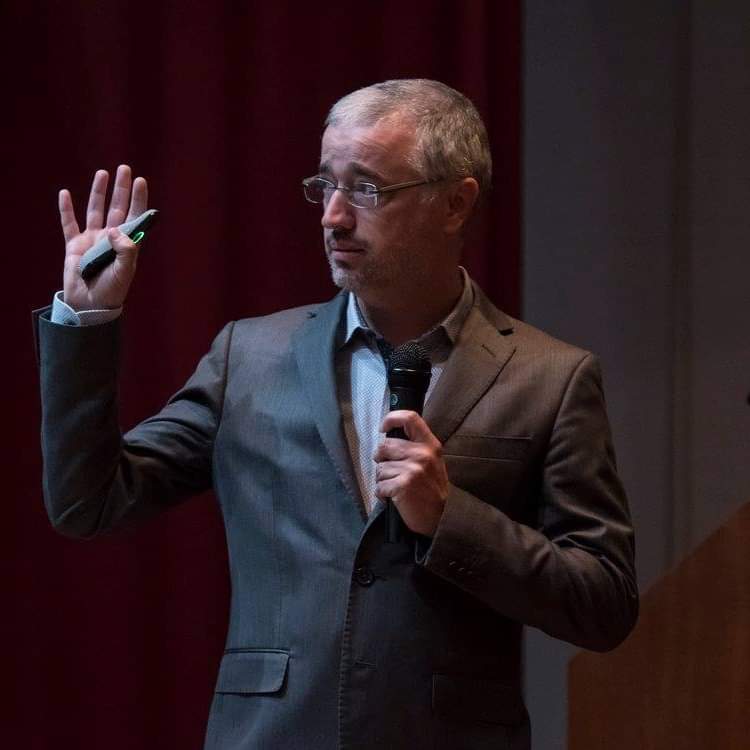 Pedro J. S. B. Caridade
Pedro J. S. B. Caridade
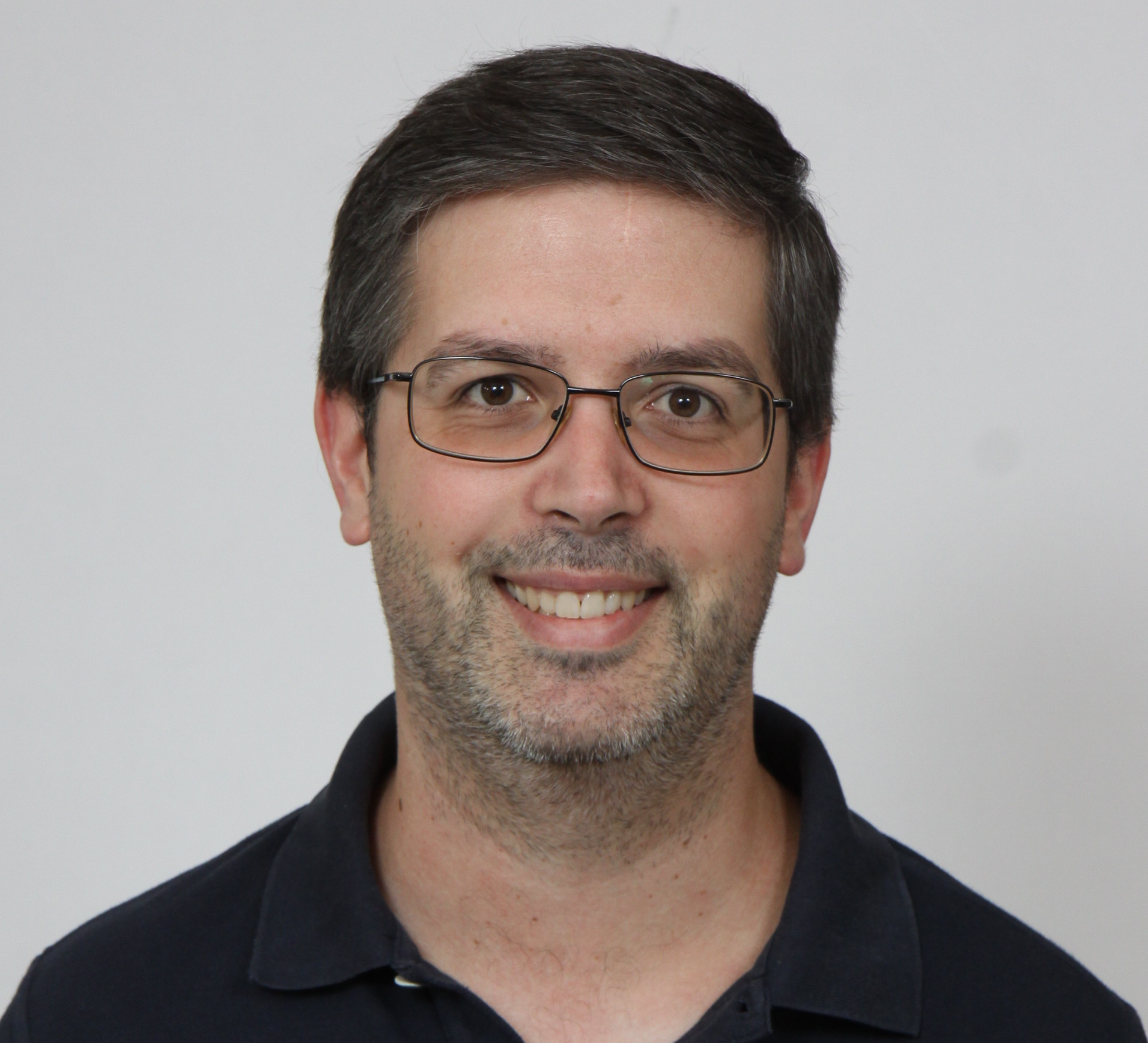 Luís P. Viegas graduated in Chemistry from the University of Coimbra in 2002 and obtained his Ph.D. in Theoretical Chemistry from the same University in 2008. He was awarded several research scholarships from the Portuguese Foundation for Science and Technology (FCT), including a Ph.D. and two Post-Doctoral scholarships at the Theoretical & Computational Chemistry group of the CQC. In 2016 he started a two year Assistant Professor position at the Aarhus Institute of Advanced Studies (Aarhus University, Denmark) under an AIAS-COFUND Marie Skłodowska-Curie Junior Fellowship, and after a Post-Doctoral and a Junior Researcher position between 2019 and 2022 at the CQC, he started a new position at the CQC in June 2022 as an Assistant Researcher, funded by the CEEC program of FCT. L. P. Viegas' research program is focused on the development and application of computational chemistry methods in Atmospheric Chemistry and Green Chemistry.
Luís P. Viegas graduated in Chemistry from the University of Coimbra in 2002 and obtained his Ph.D. in Theoretical Chemistry from the same University in 2008. He was awarded several research scholarships from the Portuguese Foundation for Science and Technology (FCT), including a Ph.D. and two Post-Doctoral scholarships at the Theoretical & Computational Chemistry group of the CQC. In 2016 he started a two year Assistant Professor position at the Aarhus Institute of Advanced Studies (Aarhus University, Denmark) under an AIAS-COFUND Marie Skłodowska-Curie Junior Fellowship, and after a Post-Doctoral and a Junior Researcher position between 2019 and 2022 at the CQC, he started a new position at the CQC in June 2022 as an Assistant Researcher, funded by the CEEC program of FCT. L. P. Viegas' research program is focused on the development and application of computational chemistry methods in Atmospheric Chemistry and Green Chemistry.
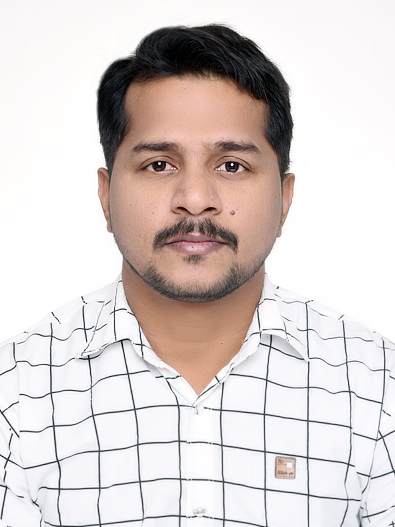 Anuj Tripathi graduated from Ewing Christian College and earned his Master’s in Organic Chemistry in 2014 from University of Allahabad. After earning his master’s degree, he joined Department of Chemistry at the National Institute of Technology Kurukshetra, India as a Project Fellow sponsored by DST-SERB. He then pursued his Ph.D. in the field of computational chemistry, focusing on the design and study of thiophene and their heteroanalogue organic molecules, particularly examining their optical and charge transport properties. Following the completion of his Ph.D., he worked as a visiting researcher for six months at the University of Warsaw in Poland. He joined the University of
Anuj Tripathi graduated from Ewing Christian College and earned his Master’s in Organic Chemistry in 2014 from University of Allahabad. After earning his master’s degree, he joined Department of Chemistry at the National Institute of Technology Kurukshetra, India as a Project Fellow sponsored by DST-SERB. He then pursued his Ph.D. in the field of computational chemistry, focusing on the design and study of thiophene and their heteroanalogue organic molecules, particularly examining their optical and charge transport properties. Following the completion of his Ph.D., he worked as a visiting researcher for six months at the University of Warsaw in Poland. He joined the University of
Coimbra as postdoctoral fellow in August 2023 where he is engaged in research related to determining reaction pathways in photochemical reactions using computational techniques. This research likely involves using computational tools and simulations to understand the mechanisms and behavior of chemical reactions under various conditions.
Collaborators
- Alcides Simão
- Aramille Souza
- Breno Galvão
- Darlene Freitas
- Fernando Pansini
- Frank Jensen
- Leonardo Duarte
- Vinícius Mota
Students
- João Fonseca
- Lia Lopes
- Maria Pedro Oliveira
- Mariana Ferreira
- Patrícia Figueiredo
- Rafael Neves
- Ricardo Barreira
- Rodrigo Baptista
- Rodrigo Santos
- Sofia Rosa
